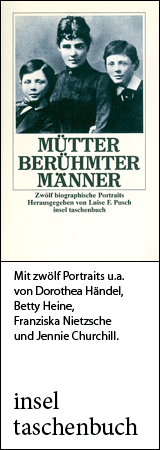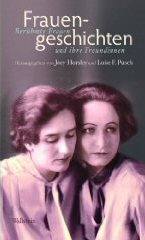Biographies Elisabeth Castonier

born on March 6, 1894 in Dresden
died on September 24, 1975 in Munich
German writer
130th birthday on March 6, 2024
Biography
Given the numerous new editions of her books and the great demand in libraries, there is no doubt that she is popular with readers. She wrote with humor and warmth, and her descriptions of life on an English farm demonstrate a special gift for observing people and animals. This type of sophisticated entertainment is quite rare in German literature and is not highly regarded by literary critics.
Castonier grew up as the daughter of an eccentric mother and an artist in Dresden, Paris and Berlin. She was an extremely versatile writer who penned articles and stories for magazines, wrote dramas and historical novels, translated from French and also worked as an editor for a Munich publishing house.
Her marriage to a Danish opera singer in 1923 only lasted a few years and they separated “without bitterness.” While she at first enjoyed wild partying in Munich art studios, dark clouds soon began gathering on the political horizon. Her critical attitude made her suspect to the Nazis and in 1933 her works fell victim to the book burning.
She went to Vienna and fled from there to Positano, Italy, in 1938: “It was easy to be poor in this climate - we were all poor, but relatively content.” When she was no longer safe from Nazi persecution in Italy either, she fled again, this time to England. She turned down a permanent position that was offered to her.
Just as when she left the security and wealth of her parental home behind her, she then made a decision that completely changed her life: in 1944 and at the age of fifty, she moved to Hampshire to live on the small farm of her friend Jane Napier, whose great love of animals she shared, and to help with the hard work in the stables and fields. It was years before she returned to writing, writing Mill-Farm, her best-known book, and the autobiography Stürmisch bis heiter: Memoiren einer Außenseiterin.
The life of this brave, life-affirming woman came to an end in 1975.
(Text from 1993; translated with DeepL.com; edited by Ramona Fararo, 2024.)
Please consult the German version for additional information (pictures, sources, videos, bibliography).
Author: Ursula Schweers
Quotes
I regret nothing - perhaps only not having committed this or that folly, because folly is the spice of life.
If you hold the rights to one or more of the images on this page and object to its/their appearance here, please contact Fembio.



